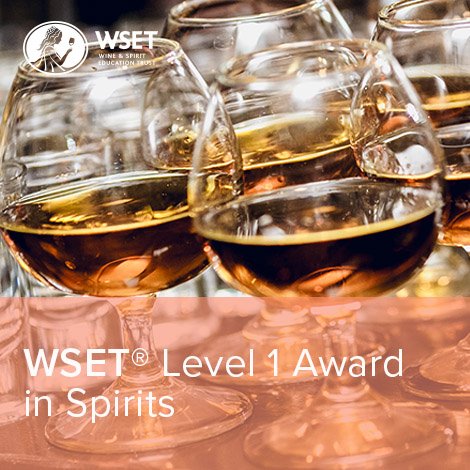SPIRITS
WSET Levels 1, 2, and 3 Award in SpiritsQuick Links
San Francisco
• Level 1
Overview of Levels 1, 2, and 3
Grape Experience offers all 3 levels of WSET’s suite of spirits courses – both in traditional classroom and online formats. These courses are an excellent way for enthusiasts and professionals to build expertise and confidence in the ever expanding range of spirits from around the world.
WSET LEVEL 1 AWARD IN SPIRITS
 |
A beginner level introduction to spirits for anyone starting a career in the industry or pursuing an interest in spirits. This course offers a hands-on introduction to the world of spirits. Explore the main styles and types of spirits through sight, smell, and taste to develop an understanding of the key factors affecting flavors and aromas. Upon successful completion, you will receive a WSET certificate and lapel pin. For the complete specification for this course click here |
WSET LEVEL 2 AWARD IN SPIRITS
 |
This professional certificate in Spirits is available online and in traditional course format. It’s a great way for trained wine professionals, bar tenders, and others in the industry to deepen their knowledge of spirits and liqueurs. It also provides added depth for spirits lovers and amateur mixologists. For the complete specification for this course click here |
WSET LEVEL 3 AWARD IN SPIRITS
 |
The WSET Level 3 Award in Spirits is an advanced-level qualification for professionals and enthusiasts wishing to acquire a detailed understanding of the spirits of the world and develop the tasting skills required to accurately describe and evaluate a spirit. This qualification is intended to build on knowledge and skills gained from the Level 2 Award in Spirits. You’ll acquire a deep theoretical understanding of the techniques used in spirit production, from the processing of raw materials to post-distillation operations. Through a combination of tasting and the application of theoretical knowledge you will learn to explain confidently why spirits look and taste the way they do and how and why they differ from each other.
|
